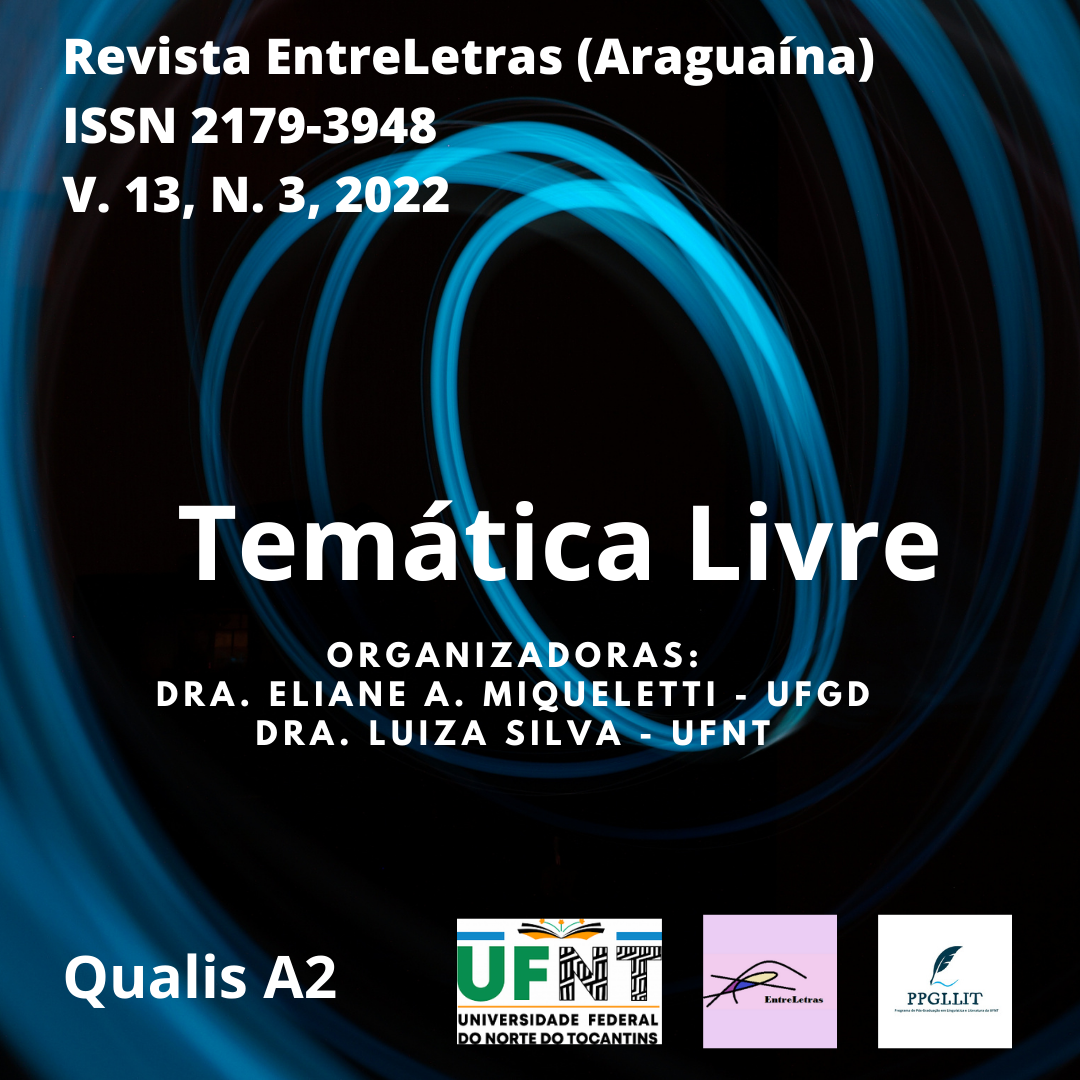LITERATURA E HISTÓRIA
HUCKBLERRY FINN E A ESCRAVIDÃO NOS ESTADOS UNIDOS
DOI:
https://doi.org/10.20873/uft2179-3948.2022v13n3p100-110Resumo
No presente artigo, analisamos o romance As Aventuras de Huckleberry Finn (TWAIN, 1982), levando em conta as questões políticas e sociais que o permeiam. Com as contribuições teóricas de Terry Eagleton (1984), Serge Gruzinsky (2001) e Farid Ameur (2010), discutimos como a escravidão e a branquitude se manifestam na narrativa. A justificativa de nossa pesquisa, portanto, se deve ao fato de considerarmos as aventuras vividas pelos personagens Huck e Jim como uma fonte de reflexão rica para quem queira se debruçar sobre questões de costume, crenças, moralismos e escravidão do século XIX, nos Estados Unidos. O narrador de Twain (1982) desenvolve com destreza temas polêmicos, mas muito relevantes ainda na atualidade – seja naquilo que toca as relações entre classes e raças, bem como naquilo que concerne ao divisionismo norte-sul estadunidense.
Downloads
Referências
AMEUR, Farid. A Guerra de Secessão. Tradução Denise Bottmann. São Paulo: L&PM, 2010.
CASH, W. J. The mind of the south. New York: Vintage Books, 1969.
EAGLETON, Terry. Criticism and Ideology: A Study in Marxist Literary Theory. Londres: Verso, 1984.
GRUZINSKI, Serge. O Pensamento Mestiço. Trad. Rosa Freire d’Aguiar. São Paulo: Companhia das Letras, 2001.
SILVA, Alexander Meireles. A subversão pela trapaça: o mito do trickster em Huckleberry Finn. Revista Eletrônica do Instituto de Humanidades, v. VI, n. XXII, 2007, pp. 1-13
TWAIN, Mark. As Aventuras de Huckleberry Finn. Tradução Monteiro Lobato. Ed. Brasiliense, 1982.
Downloads
Publicado
Como Citar
Edição
Seção
Licença
Copyright (c) 2023 EntreLetras

Este trabalho está licenciado sob uma licença Creative Commons Attribution 4.0 International License.
Os autores mantêm os direitos autorais e concedem à revista o direito de primeira publicação, com o trabalho simultaneamente licenciado sob a Creative Commons 4.0 que permite o compartilhamento do trabalho com reconhecimento da autoria do trabalho e publicação inicial nesta revista.
Os autores têm autorização para assumir contratos adicionais separadamente, para distribuição não-exclusiva da versão do trabalho publicada nesta revista (ex.: publicar em repositório institucional ou como capítulo de livro), com reconhecimento de autoria e publicação inicial nesta revista.










